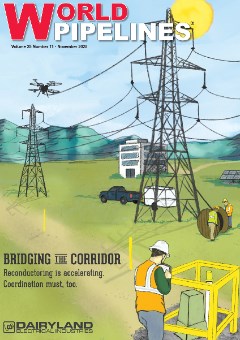Editorial comment
The Northern Endurance Partnership (NEP) was the UK’s first carbon capture and storage (CCS) network to achieve Final Investment Decision (FID), in December 2024. Project partners Equinor, bp, and TotalEnergies will gather, compress, and transport carbon emissions from industry in the north east of England, for storage in the Endurance saline aquifer, located in the Bunter Sandstone Formation of the UK Southern North Sea. Some 4 million tpy of CO2 will be stored, with the possibility for expansion up to 23 million tpy. The NEP forms the offshore backbone of the East Coast Cluster, and the FID is a huge milestone for the UK CCS industry.
Register for free »
Get started now for absolutely FREE, no credit card required.
The UK government has adopted a cluster-based approach to CCS, designed to decarbonise entre industrial regions rather than isolated plants. The clever cluster system connects multiple emitters (be they steelworks, power stations, chemical plants, or cement facilities) to shared CO2 transport and offshore storage infrastructure. Each cluster comprises of capture projects, onshore and offshore pipelines, and storage sites (depleted gas fields or aquifers under the North Sea). This way, the UK is creating a national network of CCS pipelines, a bit like the way it once built its natural gas system.
The key clusters so far are: the East Coast Cluster, located around Teesside and the Humber (bringing together the Northern Endurance Partnership, Net Zero Teesside, and Zero Carbon Humber); HyNet North West, covering industrial sites in the North West of England and North Wales (linked to the Liverpool Bay CCS storage site); Viking CCS, centred on the Humber and operated by Harbour Energy; and Acorn CCS in north-east Scotland, which will use the re-purposed Goldeneye pipeline and the new SCO2T Connect system to move CO2 from emitters at St Fergus to offshore storage.
A complex, energy-intensive, and multi-stage process exists to get the CO2 ready for transport through pipelines. The gas must be compressed to a dense, supercritical phase for pipeline transport (above 74 bar, >31°C).
Everllence (formerly MAN Energy Solutions) is providing the CO2 compression systems for the Net Zero Teesside Power and NEP projects in the East Coast Cluster. Everllence will supply five centrifugal compressor trains to compress over 370 000 kg of CO2/h for permanent offshore storage.
Looking west, Baker Hughes is providing compression technology for HyNet North West’s CO2 projects, specifically for the Liverpool Bay CCS Project. It will supply three CO2 centrifugal compressor trains with electric motors for the Point of Ayr compression station, which will form the backbone of the HyNet cluster’s transportation and storage system.
John Crane is providing six of its Type 28XP Dry Gas Seals for centrifugal compressors at a new CO2 compression facility in North Wales. This facility will act as a central hub to transport captured emissions from industrial plants in North Wales and the North West of England for permanent storage beneath the seabed.
As the projects, and contracts, stack up, we have launched the World Pipelines CCS Forum – a one day CO2 pipeline focused conference. The event will take place on 18 March 2026 at the Park Plaza London Riverbank. We’ll welcome senior representatives and technical experts from across the UK pipeline, energy, and CCS sectors, to discuss CO2 pipeline transport at a pivotal moment for UK decarbonisation.
CCS Forum delegates will also benefit from a mid-morning session – co-located with our sister magazine World Cement’s EnviroTech 2026 – on Peak Cluster, the world’s largest cement decarbonisation project. We believe that the convergence of cement and pipeline industry figureheads in one room for this session will offer a unique opportunity for cross-sector collaboration.
If you’d like to join us next March, visit https://www.worldpipelines.com/ccsforum2026


